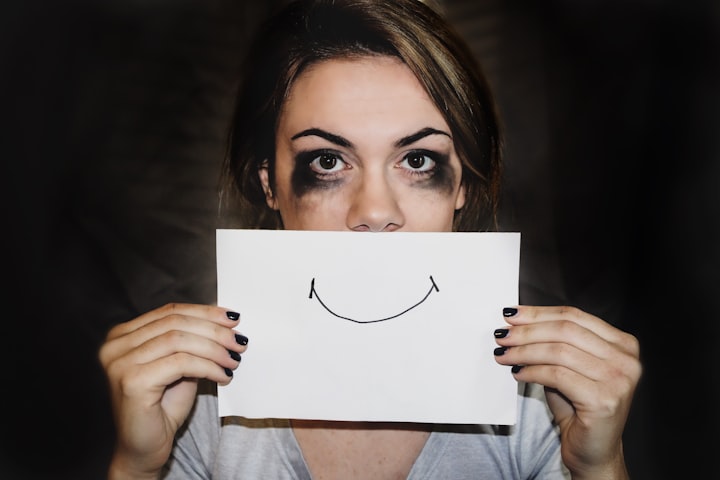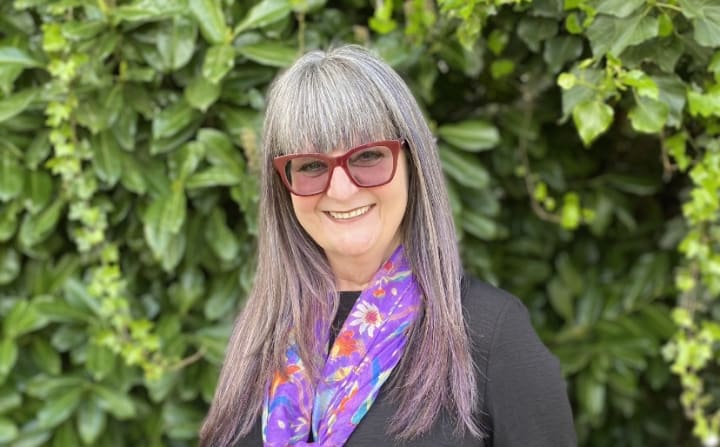The truth about depression.
When people hear my story they say .... "I couldn't cope."

Aged 59 I’m trying to decide what I want to be when I grow up.
It’s Monday. It’s 08.37. I’ve walked the dogs and had breakfast. Now I’m sitting in my garden. The sun is shining in a cloudless blue sky. The birds are singing. I’m sipping a latte and planning my day.
First I have a coaching session with a favourite client. An intelligent self taught deep thinker diagnosed with a personality disorder. After, I’ve got a meeting with two delightful colleagues to plan the launch of a collaborative project we’ve been developing.
Later in the week I’ll work on the book I’ve nearly finished writing. I’ll facilitate individual and group sessions with women resident in a recovery refuge. On Friday I’m meeting up with a friend for coffee before a visit to the hygienist. And because I’ve made a commitment to try things outside my comfort zone I’ve booked my first pole dancing fitness session.
To those who aspire to do what I do for a living, psychological therapy, coaching and training, I appear to be living the dream.
- I’ve been my own boss since the year 2k.
- I live in a lovely mortgage free home.
- I drive a new car without finance.
- I’ve got money in the bank.
- I have a good professional reputation.
- I’m physically healthy and blessed to have people in my life who love me.

But still -
Even though I have a big smile - I’m not happy.
At least not as happy as I think I ought to be.
There is an emptiness - a melancholy that accompanies me everywhere - whatever I’m doing - just like a long shadow on a sunny day. It’s not visible to anyone else. But I know it’s there. I’m also preoccupied, wondering what I should do with the rest of my life.
Last Wednesday I joined a happiness course. Some of the other participants entered into a ‘pissing competition’ listing their professional achievements and qualifications, I could have easily won but refrained from joining in. Instead when it came to my turn to express what motivated me to attend, I simply said “I just want to feel happier.”
One of the facilitators reminded me of myself way back when I first ran courses. She tries way too hard - laughs way to heartily and wants to be everyone’s friend while desperately trying to convince herself she’s sufficiently qualified to be at the front of the room.
So many of the things in life that for so long I thought were important now seem utterly pointless, trivial.
John and I had been a couple for 33 years when he died by suicide. He killed him self by standing in front of a 100 mile an hour through train. He’d been having trouble sleeping following the news his twin brother was dying of cancer. I was going away for a few days, to deliver a training course. John hated me going away at the best of times. This was far from the best of times so I suggested he went to see the doctor.

Following John’s death I discovered that while the drugs he’d been prescribed were far from uncommon - an SSRI antidepressant and sleeping pill - they were known in “rare” cases to have side effects which resulted in people feeling so desperate that ending their life appeared to be the best option.
I’d taken antidepressants myself on and off over many years. Believing and repeating the story that depression is the result of chemical imbalances in the brain. Following John’s death I discovered this story is totally unsubstantiated. I stopped taking Prozac when I found out how ineffective they actually are. And how the array of side effects are often mistaken as worsening symptoms of a mental health problem that actually for the vast majority of us simply does not exist.
“Depression is a description. It is not a medical diagnosis.” The words of a consultant psychiatrist I heard speak at a conference of experts concerned about the medicalisation of what is actually just human experience. Normal is not nice feelings. And the over prescription of drugs marketed as a treatment for mental health problems. Had a profound effect on my views. The term ‘Mental health’ - is actually a clever rebranding of mental illness.
There have always been people who experience mental illness but since the companies who produce antidepressants got us all talking about mental health - we self diagnose and request the pills we believe to be the solution. We do not bat an eyelid when a GP suggests our painful emotions are symptoms of a mental health problem, the treatment for which is antidepressant medication.
On the other hand, if we were told we had a mental illness requiring the administration of powerful mind altering psychiatric drugs that have an array of side effects ranging from mildly unpleasant to potentially life threatening - if we were told the truth about how hard it is to come off them because of unpleasant withdraw symptoms - would we regard their prescription as quite so harmless?
When people find out about how I lost John - they commonly say “If that happened to me I would not be able to cope”
I disagree - I believe we are all stronger than we think. I believe we can survive trauma. I believe rather than mental health problems - a lot of us just have problems that we need a different kind of support, encouragement and inspiration to learn how to deal with. Just because we feel depressed it does not mean we have depression. We become stronger not when life is easy - but when we are challenged. There is no short cut to resilience. Life can be really hard and we can feel scared and sad. But that does not mean there is anything wrong with us..
Good mental health is not achieved by taking drugs. It is achieved by becoming skilled at a balancing act. Balance between acceptance of what can’t be changed, such as things that are outside our control like what others think - or what’s happened in the past. And action in line with our values, in order to create a better present.
What ever has happened, the past does not dictate your future. The future is being built right now by what you do in this present moment.
If anything I have written resonates with you, please send me a small ‘tip’ to help enable me to continue raising awareness of alternative drug free ways to improve mental health. Thank you
Denise Collins BSc (Hons) MSc Coaching Psychology. Director of the Hummingbird Effect. John's widow.
About the Creator
Denise Collins
I had a successful 18 year career as a psychological therapist coach and trainer. In 2018, John my husband of 33 years died by suicide as a result of prescribed drugs.
I now write and campaign for real mental health help.






Comments
There are no comments for this story
Be the first to respond and start the conversation.